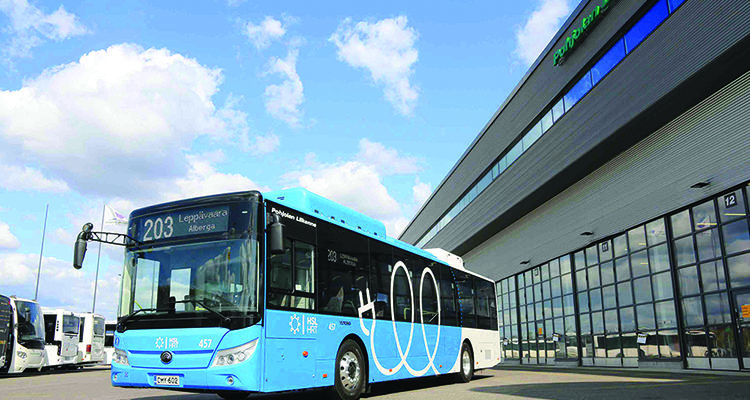In November 2018, the Helsinki Regional Transport Authority in Finland (HSL) set an ambitious goal. By 2025, 30% of the buses on its service routes would be zero-emission, fully electric buses. Just nine months later, in August 2019, Chinese bus and coach manufacturer Yutong delivered 33 electric buses to the Finnish bus and road operator Pohjolan Liikenne.
This was the largest number of buses that Finland had ever purchased from an overseas supplier and the first time that Yutong had sold its electric buses in the Finnish market. While the buses were manufactured in China, there is a Finnish connection. The composite profiles for the vehicles were supplied by Exel Composites, headquartered in Vantaa, Finland, less than a half-hour drive from Helsinki. The panels were manufactured in Exel’s plant in China and delivered to Yutong, where they were attached to a fabricated steel frame during the bus manufacturing process.
Exel Composites has been involved with Yutong on this project for just over a year, but the company has had three decades of experience in manufacturing composite parts for buses, coaches and rolling stock, according to Jari Sopanen, Exel’s segment owner – transportation, vehicle solutions. “These panels were based on that legacy, and we worked closely with the customer to develop the properties that they wanted for them,” he says.
Exel designs and manufacturers some of the largest and most complex carbon fiber and fiberglass composite profiles on the market, according to Sopanen. While the Yutong GFRP bus profiles were fairly typical, they were at the larger end of the range, measuring 35.4 inches wide by 98.4 feet long.
The thermoset profiles were made with glass mats and polyester resins in a pultrusion manufacturing process. “We run sections, and then cut them to length at the end of the line. We then do the machining for the openings for wheels and other equipment,” Sopanen says. The art of the manufacturing process is in making the shape consistently and in achieving the high-quality surface that Yutong required.
By incorporating composite materials in their electric buses, Yutong realized several benefits, including lightweighting, better thermal management and corrosion resistance.
Glass fiber is one-third lighter than aluminum and one-quarter the weight of steel. In addition, composite materials have natural insulating characteristics that make it easier and more efficient to keep passengers cool in the summer and warm in the winter. Composite materials can further reduce the part count and the weight of the bus structure by incorporating many different features into one profile.


